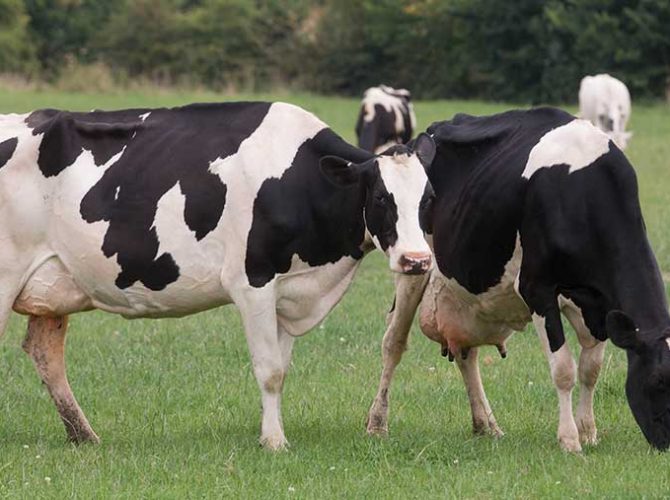Lungworm challenges ahead.
15th August 2021

July 2021 has been a hot and dry month, but this has now come to an end with heavy and persistent showers in most parts of the province.
Looking back at previous years, a dry spell of weather followed by rain has resulted in disease due to lungworm (hoose or husk) for two reasons: –
- A high lungworm challenge as rainfall activates lungworm larvae and helps to disperse them
- Low immunity to lungworm in cattle due to the low lungworm burden during the dry weather
Signs of lungworm
The main sign is coughing cattle, particularly when they are disturbed and made to rise from lying down. In milder cases, younger cattle can have a rough coat and poor weight gain while dairy cows can have drops in milk yield and fertility rates. In moderate cases, cattle can have an increased breathing rate and look like they are panting. In severe cases, lungworm larvae can block the airways, causing pneumonia and deaths.
Diagnosing lungworm
Testing faeces is not always useful as disease can happen before lungworm is found in the faeces therefore, most the time diagnosis is based on clinical signs of coughing by the vet. A bulk milk tank test can also be taken to indicate herd exposure to lungworm.
Controlling lungworm
Lungworm vaccination (two doses, four weeks apart) helps younger cattle develop immunity to lungworm. When choosing wormers, using short-acting wormers throughout the grazing season helps with the development of immunity to lungworm compared to long-acting wormers.
Treating lungworm
Unless there is resistance to wormers on your farm, most cattle wormers should be effective against lungworm and your Fane Valley Stores RAMA along with the Fane Valley vet can help you chose the most appropriate wormer. Pour on Eprinomectin is the only licensed treatment in dairy cows due to a zero-day milk withhold. If you suspect cattle are sick, consult your vet for advice as cattle may need anti-inflammatories and/or antibiotics. To protect against wormer resistance don’t forget to either treat to individual weights or weigh the heaviest animal in the group and treat the group to that weight.
Summary
Be vigilant for clinical signs of lungworm in August, particularly in young cattle that have been regularly wormed as they have a low immunity to lungworm.
Ask your local Fane Valley Stores RAMA or Fane Valley vet for the most appropriate way to prevent or treat lungworm.

